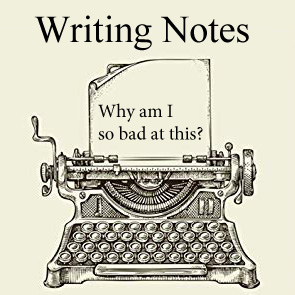Posted on July 24, 2021
Writing Excuses Notes: Intrigue
Here are some notes I took after listening to Writing Excuses.
It is an educational podcast that helps novelists/writers.
The topic was from Season 10, Episode 19.
Intrigue

“What’s the difference between intrigue and mystery?”
[Dan] We’ve done suspense and mystery, but we’ve never done intrigue
[Mary] For me, intrigue is something that turns up in a lot of different forms.
It’s specifically about questions and people who are deliberately hiding things.
[Brandon] Characters who know different things from other characters.
Yes, there’s the genre of intrigue, which is based around the spy novel sort of thing. Which is different from mystery and suspense. That’s an actual genre.
[Brandon] Every book you’re going to write, someone knows something someone else doesn’t.
[Howard] (Intrigue is) Putting a stake in the ground.
Mystery is when the author is hiding things from the reader.
Intrigue is when the author has the characters hiding things from each other.
How do you deliberately hide things from other characters without withholding from the reader to falsely build suspense?
[Brandon] The other big problem is where you don’t let characters talk about the things they would normally talk about in order to further the plot.
You want them to withhold information from each other, but not using “idiot plotting”.
Avoid idiot plotting (ex:)
– If they would just “wake up and smell the coffee”, that everyone else would recognize
– If they would just say the thing that every normal person would say, you have no plot.
[Mary] A Frustrating Trope: “What’s going on?” “No time. Come with me.”
They’re then walking and not talking about the thing.
A quick fix: Someone says, “What’s going on?” He said, “I’ll tell you as we go.” And he does.
That raises the stakes. You know what’s going on/what’s was at stake/exactly what could go wrong.
[Howard] That sort of a scene gives you the opportunity to write snappy, fast-paced dialogue that’s more fun.
[Mary] Exactly. In this scene, the characters were:
- masking their emotional response to what was going on from each other
- the tells were obvious.
The character could tell that he was holding back about something, but it’s not the author withholding information that the character would have divulged.
How do you do this? How do you make this work? How do we do it as writers?
[Mary] So you’ve got a character who is keeping a piece of information back.
You can do a couple of things:
– Have your POV character notice that they aren’t saying something.
Some physical mannerism. So, you can flag that. You can think that their response is odd. That’s a strange response to this. You can signpost it that way.
[Brandon] One of the big things you have to do here is you have to make sure your character motives are expressed well.
There is a big difference between a plot where:
– “Man, if these characters would just talk, this book would be over,”
– “Oh, I hope they talk, he eventually is willing to reveal the secret to her.”
The difference between these two plots is when you’re in the character, you can understand why they’re not talking.
This is just one an example:
If you can get across to me that this character legitimately would not discuss this issue, then I’m on board with that as an obstacle in the relationship.
If you can’t, then I’m going to be feeling like these characters are idiots.
[Dan] There’s a lot of other reasons beyond dragging out the suspense that you wouldn’t want characters to talk to each other.
An example: The big dinner party in Dune. Basically, just intrigue right and left
Dune is third person omniscient.
Because it’s omniscient, they are able to jump from head to head.
One person will say something, and then you get to see three or four different characters interpretations of that.
– What does he mean by this?
– Is he trying to suggest X or Y?
– Is he on our side or not?
[Brandon] Dune is a great example.
There’s no mystery, because you know who the traitor is from the get-go.
The suspense is you waiting for that to drop.
The intrigue is that space in between where you know who the traitor is, and you’re finding out why they’re keeping their secrets.
[Howard] Without going third person omniscient, one tool is:
- To have your POV character talking someone.
- In your next scene, that someone else is the POV character.
- Once you’re inside their head, you figure out that they’ve been lying.
That is a reveal that draws you forward.
- Oh, the thing that I thought I just learned, I didn’t actually learn.
- Oh, this is something different.
- What the previous chapter’s POV character thought he was seeing and sensing is actually this.
You can bounce that back and forth and carry a reader forward. Sort of a spy-versus-spy.
[Mary] The challenges when you’re doing all of this is:
- How to plant the information
- How to keep the reader from feeling like the character is stupid for not figuring it out.
A Trick: Having the POV character look at a character’s behavior and say:
“Oh, I wonder why they did that? It could be this… A, B, or C.”
They settle on B.
But it was actually C.
Give a solid reason for misidentifying it.
– It also helps with red herring the audience sometimes.
– At the same time, it is planting the real reason as a legitimate reveal.
[Dan] The big differentiation from a mystery, whereas mystery is one innocent person trying to figure out what is going on, is that intrigue involves different people trying to deceive each other.
- Trying to not let the reader figure out what I’m saying so there’s different levels of deception.
[Brandon] The intrigue genre involves people who are deliberately hiding secrets from one another.
[Howard] An Example: POV character invites someone out to dinner.
– The real intent is not to want to go out to eat.
– The real intent is a desire to propose.
That is a level of intrigue that is full of tension and suspense, especially if you know what the character has planned.
Because this can go terribly, terribly wrong.
[Dan] A Key Tool: When the reader knows what the characters are planning.
It’s not a mystery.
It’s literally let’s just watch how they go about achieving their plan.
[Mary] A Different Example: A scene in which two characters are talking.
- One of them is approaching the conversation assuming that the other one is lying.
- The other one is not.
[Brandon] That’s sort of a reverse of the previous example.
[Mary] The POV character was constantly trying to figure it out.
Watching the thought process of trying to put the pieces together kept it moving forward.
The reader could state: “I think the character might be misinterpreting this.”
That’s one thing that you can use: Play with societal expectations. Common experiences.
That you know that if someone is sweating and it’s a 90° day, that they’re probably hot. It’s not that they’re possibly nervous.
[Howard] So the POV character was listening to someone, believing that they were an unreliable narrator.
You, the reader, were able to treat the POV character as an unreliable narrator.
Talking about intrigue, the genre, for a little bit.
[Brandon] Because we’ve talked about intrigue in all different genres, but it is specifically its own thing, the spy genre. What can we say about this genre?
[Dan] Spy, and political.
An Example: House of Cards.
While wildly melodramatic, it is a master class in people lying to each other and deceiving each other.
[Brandon] So what makes it work? What makes the genre fun to read?
[Dan] Okay. So going back to House of Cards, since I was just talking about it,
We know what the main character (Frank Underwood) wants, but we don’t know exactly how he’s planning to go about it.
How he is slowly worming his way into the position he needs to be in.
It is a very long con game that he is essentially playing in order to gain political power.
Step-by-step, we get to watch the intrigue of:
- why is he suddenly concerned with this one particular senator-
- with this one particular bill
Through those moments we slowly can piece together the overall plan.
We know the long game; we know the answers. There is no mystery.
It’s all just watching him weasel his way around Washington to make the plan work.
[Mary] Knowing the answer. That part of what is working with intrigue really is knowing the character motivation and that part of what is fun, part of what makes it something that I want to read, is watching how they pull it off. And watching the doublespeak.
[Howard] Another example (in terms of television) is The Blacklist
Every conversation is laden with:
– somebody’s lying
-someone’s dangling bait
Sometimes the bait is an emotional reveal/a connection.
That also turns out to be a lie, but now the character has what they want.
[Brandon] Part of the fun is the tension of telling lies.
Every time a lie is told, we get a little tense because the reader asks:
- What’s going to happen when that lie comes out?
- Can they dodge the ramifications?
- Can they keep the lie going?
The Miles Vorkosigan basically starts with “here’s a little lie and how far can this lie go?”
It’s a blast.
[Mary] A Key Note: Lies are the action, so there have to be consequences to the lies in order for it to be intriguing.
In terms of knowing the character’s agenda:
It’s not just what they want.
It’s what their plan/what their agenda is.
Then the other thing is the emotional stuff.
– When we’ve seen a character, who’s lying all of this time, and they finally pick someone to tell the truth to, that it represents a layer of trust.
– When it’s two people that we want to see team up together, we’re kind of rooting for that moment to happen.
* Which can backfire on them.
There’s a lot of different ways you can go.
[Howard] An Example: When it’s one-sided emotional development.
- One of the characters has decided to open up and be trusting.
- Then the other character has been working for this moment all this time.



Im a stranger, sorry for bad English
I came here by mistake and by chance read your life story… Its strange man…
My name is Ahmad, i was born 1997 in a little city named Zahedan… In Iran… Im part of minority sunni mualim in a majority shiite muslim iran…. So life wasnt that good…
I grew up playing age of empires II and watching TMNT, Iread many books and i wasnt that good looking… My father and mother were teachers… I had a little sister named Maria…
I accepted as a medical student in a much little city than my hometown named Zabul, in 2016…i fell in love but rejected becuz of politics and what i believe as what is right in the world but no big deal…
I played total war series, STALKER series…
I like anime like attack on titan and post apocalyptic art…
I became redpilled after break up and became more firm becuz the girl acutely acted like a stupid whore and i couldn’t take it anymore
Im eastern… From middle east… But with same dreams and wishes… Looking to find happiness and light in the world… When you look at the moon… U can imagine me as a stranger live under it as i feel sameway as you… We could be good friends but we are far away brother…
I believe the God who created this earth and all unnamed stars… Wanted me to meet u at 4:25 A.M i believe in him and i wish we could meet in afterlife… Be strong and i like to invite you to islam… I dnt expect you to do but im gonna do my mission… You are my friend anyway… I hope you find a tradwife and children… Say hello to your hard working father and your kind mother and say congratulations to your sister for engagement and all… I hope you all a happy life
…. Protect your family and help strangers.. With your time… With your kindness… With your money… And when necessary with tour life…
Be a brother to your father, mother and sister… Be strong… And fear no evil…
Good bye brandon… Untill we meet again many years later… When we all return to God…
Now its time to go and for me to disappear in the fog… ?